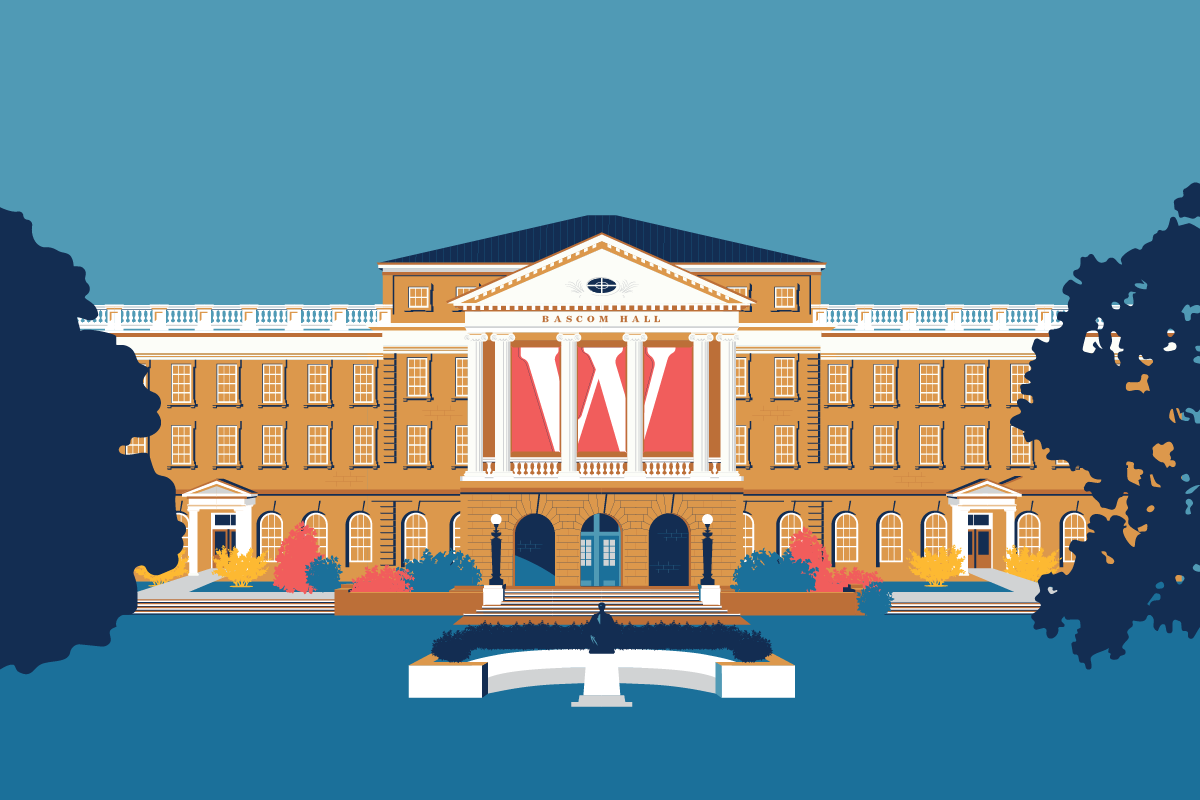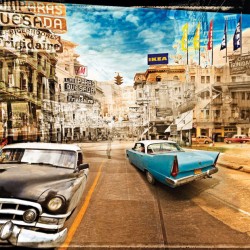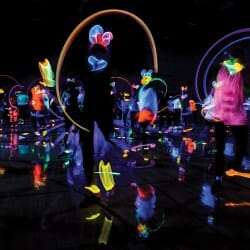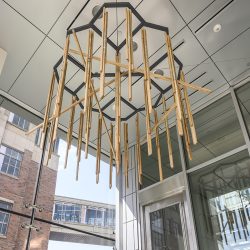
Danielle Lawry
Student employment at UW–Madison can unlock many things: skills to prepare for a future career, work experience for the résumé, and lifetime friendships. If you’re paying your way through school, it can also mean making a living. It checked all those boxes for me as I filed away paperwork for the College of Letters & Science, served beer
at Memorial Union’s Stiftskeller, and interned for this very magazine.
What do today’s students learn on the job? According to a recent campus survey, the top three skills they develop are verbal communication, teamwork, and knowledge of individual strengths. This year, the UW’s student jobs board hosted more than 700 listings, with titles such as agricultural field technician, cybersecurity intern analyst, tour guide, invertebrate animal care assistant, surgical simulation intern, peer adviser, Zumba instructor, and “analytics hero.”
No matter the position, a student’s work for the university proves mutually beneficial.
“The perspectives students bring to our work help the UW grow and inspire us to improve in meaningful ways,” says Kristina Rittel, student employment manager for the Office of Student Financial Aid. “We would not be able to provide the exceptional services that we do without our student employees.”
Top Five Campus Employers
Recreation & Wellbeing (RecWell)
College of Letters & Science
Wisconsin Union
University Housing
School of Medicine and Public Health
Campus Minimum Wage
$10
per hour
Student Employee Average Wage
$15.15
per hour
Student Employees
11,135
(as of March 2025)
Student Job Applications
31,824
(2024–25 academic year, through March)
Published in the Summer 2025 issue



Comments
EIleen Doughty June 16, 2025
I did love my student jobs, every bit as memorable and life-changing as my degree in Cartography (1981). In the late ’70s, minimum wage actually was good money. My first campus job was as a student secretary at the Space Science department (SSEC), typing papers and routing phone calls for scientists involved with weather satellites and the Voyager probes to the outer planets. That required a specialized alphanumerical attachment to my fancy electric typewriter. And those brilliant scientists were really nice guys. Another summer job was in the Physics department, being the “safety officer” for the staff using the particle accelerator (watching the dials while I read a book), and making targets for it in the machine shop. Finally I ended up in my own degree field, in the Auto Carto lab in the attic of Science Hall, back when computers were just getting started in mapmaking. Such fond memories!